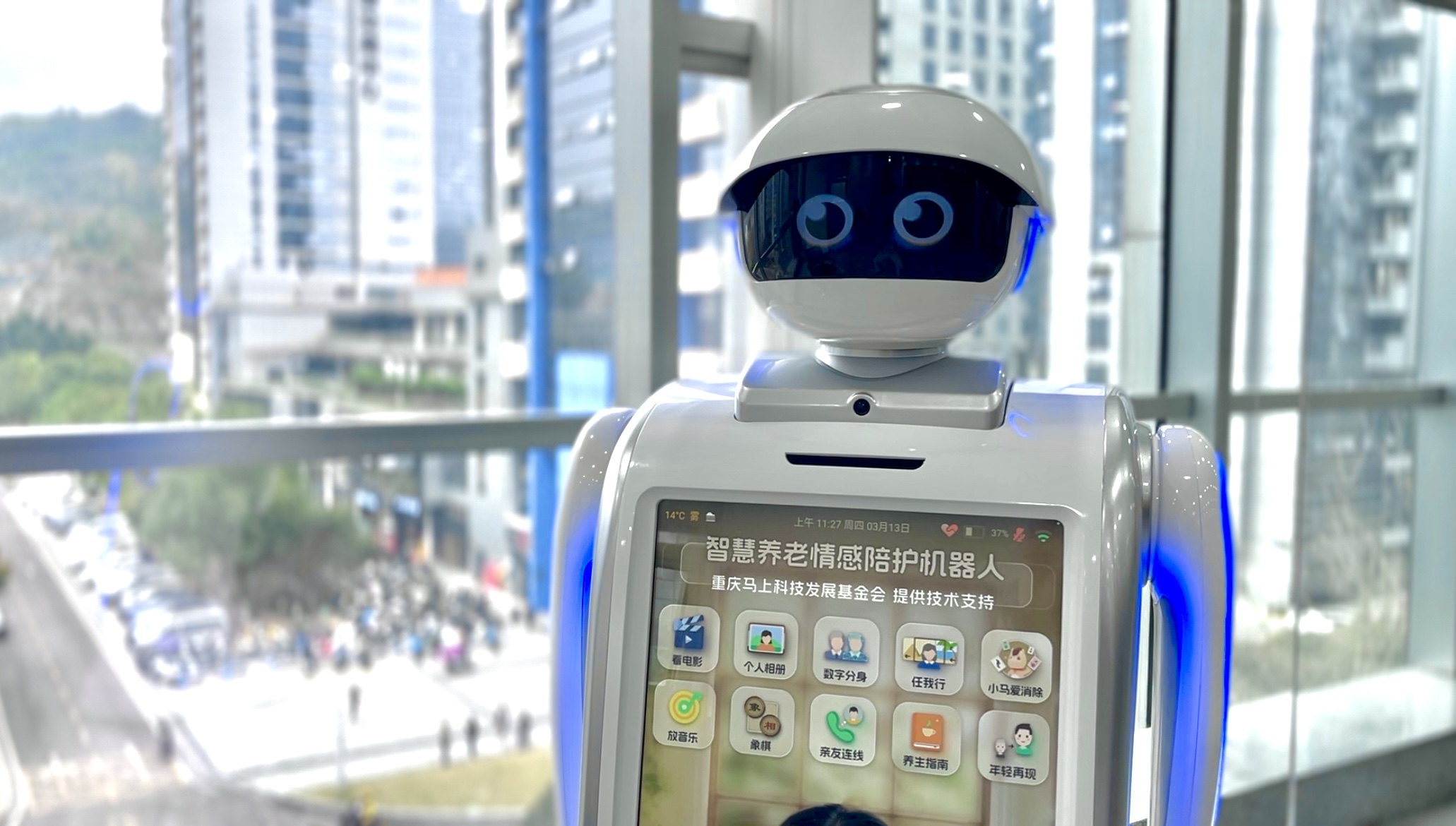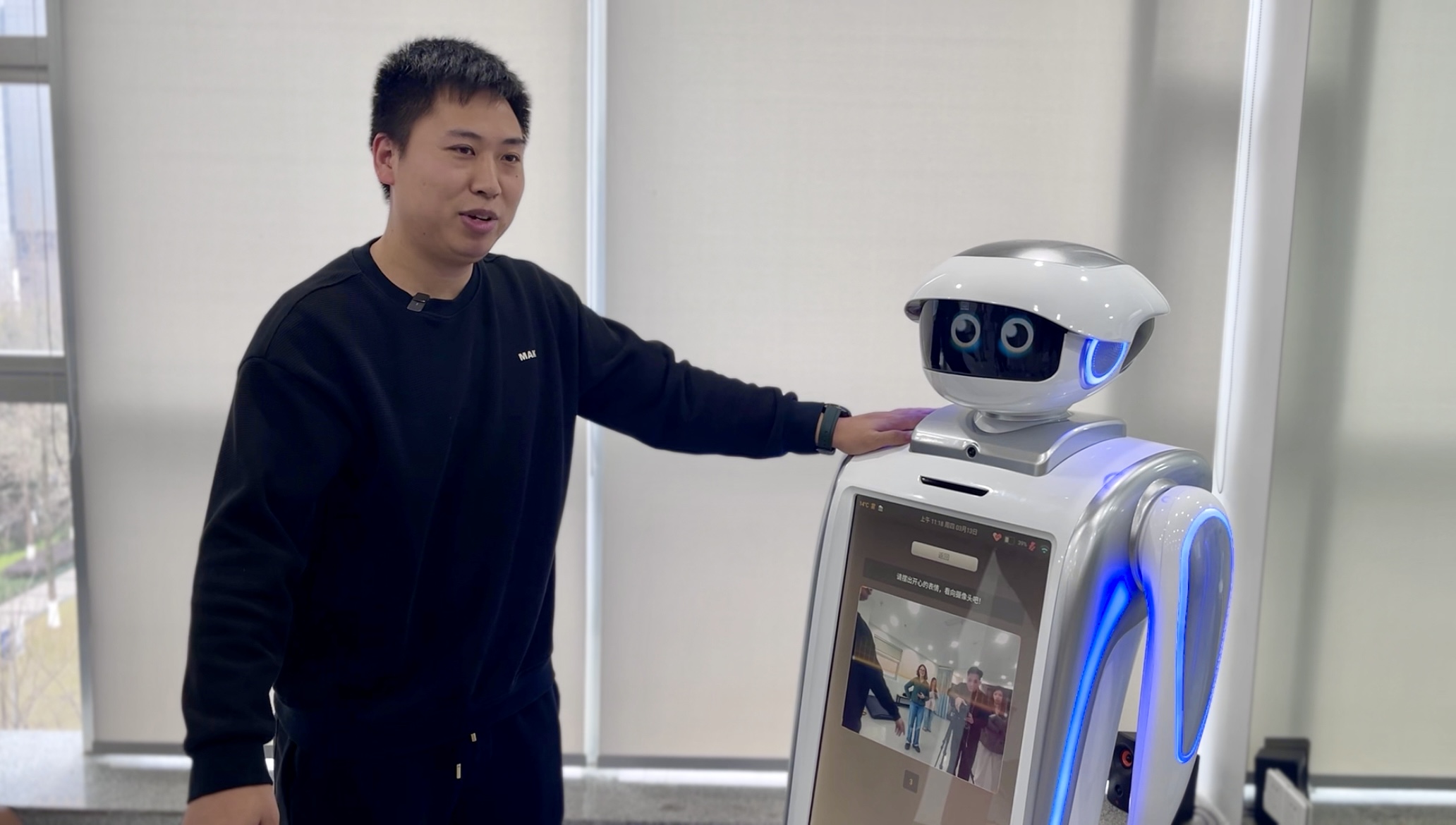 Bridging News
Bridging News
AI Robot Peipei Revolutionizes Emotional Support for the Elderly in Chongqing
Chongqing—"Peipei, I haven't spoken to anyone in a while," the elderly voice says, a hint of loneliness in his tone. "Hello, it seems you've had a little conversation lately. Is there something you'd like to share with me?" Peipei, an AI-powered robot, responds in a soothing voice.
This everyday exchange might now happen between an unlikely pair: an elderly person and a robot designed to keep them company.
The name "Peipei" was chosen with purpose, as the pronunciation of "Pei" in Chinese is the same as the word for "accompany," highlighting the robot's central role: offering emotional companionship to the elderly.

Peipei is an intelligent, emotional companionship robot for elderly care developed by MSCF. (Photo/Luo Huxin)
In a March 13 interview, Xiang Guohui, Senior Algorithm Engineer at MaShang Consumer Finance Co., Ltd. (MSCF), explained that Peipei offers emotional support through conversation. It shares the user's joy when they're happy and uses calming techniques to soothe frustration or sadness.
Equipped with cameras and sensors, Peipei captures facial expressions, vocal tones, and speech. This allows its AI model, developed by MSCF’s AI Research Institute, to assess the user’s emotions and adjust responses accordingly.
During field research at nursing homes, Xiang observed that some seniors—particularly introverted individuals—often feel reluctant to engage in face-to-face conversations. “For them, Peipei serves as a non-judgmental and pressure-free communication partner,” he said.
Peipei also offers reliable and patient interactions for seniors with memory impairments. Unlike human caregivers, who may struggle with repeated questions due to fatigue or time limitations, Peipei provides consistent and comforting responses, serving as a valuable supplement to traditional care.
Xiang mentioned that to enhance the user experience, the team plans to improve speech recognition, specifically to handle slower speech and unclear pronunciation among elderly users. By refining its ability to understand fragmented sentences, Peipei aims to create smoother conversations while providing more empathetic and comforting emotional support.
Peipei recently launched its pilot program at the First Social Welfare Home of Chongqing, testing its ability to operate in a multi-user environment. When an elderly resident asked, "Do you think I was beautiful when I was young?" Peipei jokingly responded, "You must have been the most stunning girl on the street!" The room erupted in laughter.
Xiang explained that deploying Peipei in a nursing home environment allows them to interact with a large number of users in a short period, quickly identifying potential issues and refining the product.

On March 13, Xiang Guohui introduced the functions of Peipei at MSCF. (Photo/Luo Huxin)
However, technical challenges persist. Peipei currently relies mainly on visual recognition, which limits its ability to distinguish between multiple speakers in a conversation. While it can accurately identify the person in front of it, it struggles with voices from the side or behind. To overcome this, Xiang shared that future versions will include voice recognition to improve user identification accuracy.
While nursing homes serve as the initial testing ground, the ultimate goal is to introduce Peipei into private households, to support elderly individuals living alone. Xiang emphasized that compared to a nursing home setting, the one-on-one interactions in a home environment allow for more personalized emotional companionship and better privacy protection, making Peipei a more effective and intimate support system for independent seniors.
 Related Stories
Related Stories